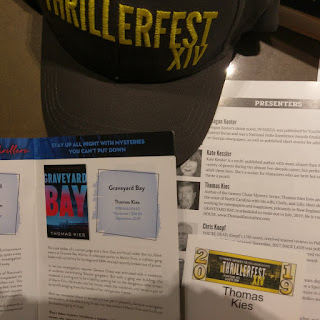
A couple of days ago, I received this email:
"Beginning August 8th, the Rocky Mountain Chapter of Mystery Writers of American will begin broadcasting our meetings LIVE, making them available to members who are unable to attend in person. It will allow members online to ask questions through CHAT and to participate in real time."
I'm just thrilled. I signed up right away. There have been a number of meetings I've signed up for and then couldn't make the trip from Fort Collins to Denver. I simply won't do snow and ice.
I hate paying for meals in advance only to find that I can't make the trip.
The Rocky Mountain Chapter has outstanding programs. We have great speakers on a variety of subjects. Their expertise helps keep my writing as accurate as possible.
For our August RMMWA program, Stephen Pease will present the real duties of the licensed private investigator, myth- and cliché-busting. He’ll cover things like how you become a licensed PI in Colorado, what sorts of things PIs do, along with things they would never do, and how a case works. Future meetings will include information on human trafficking, surveillance, and Sierra Detection.
Chapter meetings are valuable for a number of reasons in addition to the informative programs. It's great to hear what other members are publishing. We pick up valuable tips for selling and promoting books and form lasting friendships with other members.
Coming up in December is our delightful six-word mystery contest. This was inspired by the famous Earnest Hemingway short story challenge.
It is claimed Ernest Hemingway once wrote a six-word short story that could make people cry for a bet. The wager was ten dollars, which Hemingway won with the following:
“For sale: Baby shoes. Never worn.”Our challenge is to write a mystery using only six words. The categories are: Hard-boiled, Cozy, Thriller, Police Procedural, or a mystery with Romance & Lust. There is also an all-over winner.
My favorite grand champion one year was: "Eyes so lovely, I kept them."
I will attend as many meetings in person as I can, but it's great to know that I will now have the on-line options.









